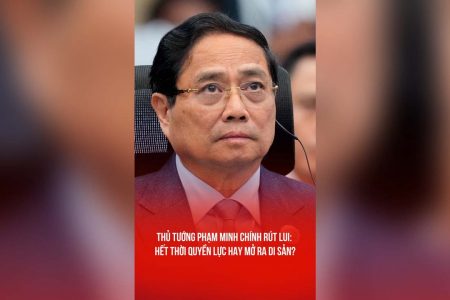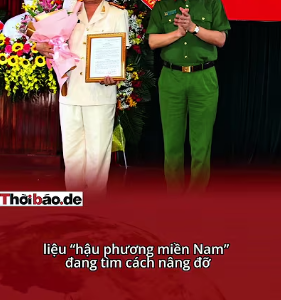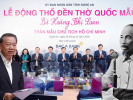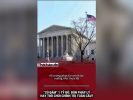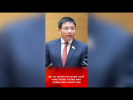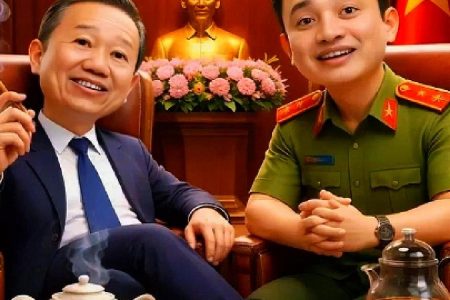
In just 3 days, two popular cultural events in Vietnam face being banned or boycotted, because they were related to China’s image of the „cow’s tongue line“ in the South China Sea (Vietnam calls it the East Sea).
The first is the information that Vietnam’s Cinema Department issued a ban on the Warner Bros Barbie movie due to the appearance of an image believed to be a „cow’s tongue line“ in a scene, and the most recent is the wave of boycotting the show of the Korean band, BlackPink, because of the appearance of the nine-dash line on the organizer’s website.
Unlike the consequences it causes in the East Sea, when the threat of sovereignty has caused a homogenous protest effect, the impact of the „cow’s tongue line“ on events taking place in Vietnam causes more mixed reactions.
In the current context in Vietnam, it is hard to imagine if anyone supports China’s claim to sovereignty in the East Sea area, because for the Vietnamese, territorial sovereignty and the threat from China remain the main catalyst for reviving nationalism.
However, in recent years, China has moved the sovereignty disputes out of geography, which has succeeded in integrating messages that reflect its views on the South China Sea disputes into other areas closer to the needs of consumers, including cultural publications, fashion brands, and utility applications on mobile phones.
This puts Vietnamese people in a position where they have to choose between national sovereignty and legitimate personal needs.
The incident of the movie Barbie and the performance of the band BlackPink are two typical examples of Vietnamese people facing this reality.
While national sovereignty remains a key factor in the rise of nationalism in recent decades, it has spawned large-scale protests and anti-China sentiment. Personal preference also has an equally strong emotional effect. Therefore, being forced to choose one of the two has created fierce debates in the hearts of Vietnamese society.
For nationalists who put territorial integrity and national sovereignty first, the usual response is to lash out at any form of spreading the „cow’s tongue“ map, uncompromisingly.
Nguyen Tuan Anh, a Facebook user from Hanoi, is one of them. As soon as information about the map with the nine-dash line appeared on the website of BlackPink’s concert organization company, he immediately expressed his strong objection on his personal Facebook page which has more than 15,000 followers.
Talking to Radio RFA, Mr. Nguyen Tuan Anh explained his actions as follows:
“For any Vietnamese, national sovereignty is always the most sacred thing, that’s why the cow’s tongue line is posted by any company, or event organizer, or any service or product related to Vietnamese people, or sold in the Vietnamese market, any Vietnamese has the right to object.”
It can be seen that this view is widely shared in social networking forums, with many even accusing those who continue to want to attend the concert of the Korean group as „unpatriotic.“
The boycott of companies, brands, or cultural publications that do not comply with the sovereignty claims of the host country is actually not only happening in Vietnam. In fact, China is inherently the leading country and actively implements this policy. China’s government and people have always been consistent in requiring that any business operating in China, or any cultural publication that wants to circulate here, must comply with the request regarding images of claiming sovereignty over areas such as the South China Sea or Taiwan. And if ones do not comply, they will be boycotted or banned.
Most recently, the movie Top Gun, starring famous actor Tom Cruise, had to remove the image of the Republic of China flag from the film, in order to be allowed to screen in the Chinese market. Or consumers of the country of billions of people have also called for a boycott of brands originating from Japan due to a sovereignty dispute in the East China Sea.
When talking to Radio Free Asia, Mr. Nguyen Tuan Anh also pointed out this fact, he said:
“Like China, they are very tough, on any map of the world without a cow’s tongue line, they forbid that business from selling products, services, or doing business in their country, even though this has not been expressed by the Vietnamese government by law, but as a Vietnamese, I am self-aware of it by boycotting.”
But boycotting is not always an easy thing to do, especially when the object of the boycott is something that someone loves.
In the case of the BlackPink group, the call to boycott was originated from a Tiktok account named Phaminhiu, in the video with nearly 3 million views after only one day of posting, this account said it had discovered the image „cow’s tongue line“ after accessing the website of iME Intertainment Group Asia, the organizer of BlackPink’s concert in Vietnam.
After the wave of boycott was spread on social networks, many fans of this girl group posted to protect their idols. They think that boycotting the concert is unjustified, because the members of the band BlackPink themselves have nothing to do with the bull’s tongue map appearing on the website of the organizer. In addition, they also accused those who voiced their boycott of their idols as a double standard, when on the one hand they demanded a boycott of their idols but on the other hand continued to use products originating from China.
Responding to an interview with a reporter from RFA Radio via a messaging application, Nguyen Nhu Quynh, a fan of BlackPink group, countered the accusation of „unpatriotic“ that those who sided with the boycott made.
“Why is it unpatriotic to support a concert held in your own home country? Idol love must go hand in hand with patriotism, but right now, our idols aren’t wrong, they don’t post, propagate, or say anything about this issue!“
She also accused those attacking BlackPink’s fans of being „prejudiced“ against Kpop in general and BlackPink in particular, so they took this opportunity to attack fans of the Korean girl group.
In a more neutral perspective, many argue that it is necessary to separate each event and evaluate it based on its own context, rather than applying a common approach, in this case calling for boycott.
In addition, the state also plays an important role in the response of public opinion to publications with the image of the „cow’s tongue line.“ According to Nguyen Quoc Tan Trung, a doctoral student in international public law at Victoria University, Canada, the reaction of public opinion and the move of the state is „dialectical relationship with each other.“ Specifically, the state’s issuance of censorship orders has encouraged public opinion to express negative attitudes towards cultural products with the nine-dash line, and vice versa, every time the state fails to censor it, it will criticized by the public.
He also said that the boycott efforts of the online community in Vietnam still remained at the level of „performance“ which is not systematic and usually takes place in a short time, leading to low efficiency. Another drawback of the wave of boycotts so far, according to Trung, is that it has failed to restrict cultural products originating from China, such as movies and music, which are often used in Chinese culture certainly support the position of the Chinese government on the South China Sea issue.
However, the expert in the field of international public law also said that in the case of the Barbie movie, the censorship behavior of the Vietnamese government has created a good effect for efforts to protect sovereignty. He said:
“In this case, a lot of international media reported on the incident. This can help Vietnam to convey a message to the whole world that we do not accept China’s claims in the East Sea, once again strengthening the legal position and evidence from the Vietnamese side in this history of facing the South China Sea claim from Beijing.”
Obviously, with China continuing to make efforts to integrate the message of its sovereignty claims in the South China Sea into its essential products, the challenge for countries like Vietnam will continue. Not only diplomatically, when the government has to resolve disagreements with international companies, but also socially, when Vietnamese people are faced with choice either sovereignty or personal preference.
Thoibao.de (Translated)



